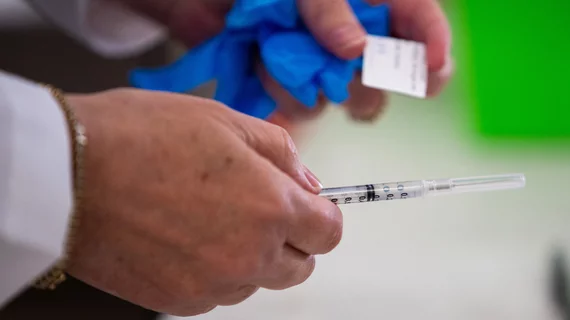Long COVID-19 more likely to impact women, those with anxiety and depression
As researchers take a hard look at the impacts and associations of long-haul COVID-19 infections, more trends are appearing.
According to a large study from DNA testing company 23andMe, women, as well as those diagnosed with anxiety and depression, are more likely to be afflicted with long COVID-19. In fact, being diagnosed with depression or anxiety is associated with a more than a two-fold increase in risk for the condition, the study found. Long COVID is defined by a wide range of symptoms that linger long after an initial infection, up to several months or more. Some of these persistent symptoms are shortness of breath, fatigue, fever, headaches, brain fog and other neurological problems.
The study included data from more than 100,000 individuals who reported contracting COVID-19. Of the participants, more than 26,000 reported having long COVID-19, and more than 7,000 said they’d been diagnosed with it. 23andMe has conducted a number of studies since the onset of the COVID-19 pandemic.
23andMe researchers conducted a regression analysis, controlling for age, sex, and ethnicity, and found that those with depression or anxiety prior to COVID-19 infection had a two-fold increase in the risk of being diagnosed with long COVID. Other conditions also had an association with long COVID-19, having a cardiometabolic disease, such as high blood pressure, coronary artery disease, type 2 diabetes and high cholesterol, was associated with a 90% higher risk of being diagnosed.
About half of those who experience long COVID-19 symptoms also said they experience them for six months or longer. After more than a year, about 10% of those who are diagnosed with long COVID-19 still have symptoms. More than half of participants saw no change after vaccination, 23andMe found. Among those who did report a change after vaccination, roughly twice as many people reported an improvement in some or all of their symptoms rather than worsening.
23andMe’s unpublished study also revealed women are at least twice as likely to experience long COVID-19 compared to men. Additionally, 23andMe found women report long COVID-19 symptoms for longer than men, and the symptoms impact menstrual cycles.
“More than 78% of those diagnosed with long COVID in the study were females, compared to about 62% among those who reported not having experienced long COVID-19,” 23andMe found.
While this finding is in line with other studies, it contrasts findings that men are actually much more likely to be infected than women in the first place. A recent Harvard study also found men are more likely to die from COVID-19 than women.
While the study did find some trends among long-haul COVID-19 patients, scientists still don't fully understand what causes it or how to treat it. 23andMe is continuing to study the issue, including the role of blood type in COVID-19 severity and susceptibility, as well as potential genetic influences in different reactions to COVID-19 vaccines. The DNA testing company already published a study earlier this year in Nature Genetics that identified genetic variants associated with the loss of smell or taste due to COVID-19.
23andMe noted there were some limitations of its study, including the fact that its insights came from self-reported data from research participants. The participants also do not represent the U.S. population as a whole.
Related Long-COVID Content:
Long COVID-19 impacts 30% of infected patients
VIDEO: ACC Guidance on the cardiovascular impact of COVID-19 and post-acute sequelae of SARS-CoV-2
ACC consensus explains what cardiologists should look for in long COVID-19.

